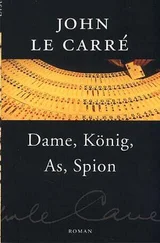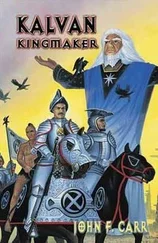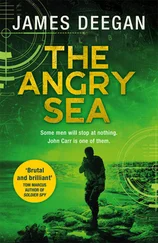What was also not apparent to any outward eye was that only two hours previously his live-in girlfriend of three months’ standing had walked out of his Islington flat vowing never to see him again. Yet somehow this tragic event had failed to cast him down. If there was a connection between Isabel’s departure and the crime he was about to commit, then perhaps it was to be found in his habit of lying awake at all hours brooding on his unshareable preoccupations. True, at intervals throughout the night, they had vaguely discussed the possibility of a separation, but then latterly they often had. He had assumed that when morning came she would as usual change her mind, but this time she stuck to her guns. There had been no screams, no tears. He phoned for a cab, she packed. The cab came, he helped her downstairs with her suitcases. She was worried about her silk suit at the cleaner’s. He took the ticket from her and promised to send it on. She was pale. She did not look back, even if she could not resist the final word:
‘Let’s face it, Toby, you’re a bit of a cold fish, aren’t you?’ – with which she rode away, ostensibly to her sister in Suffolk, though he suspected she might have other irons in the fire, including her recently abandoned husband.
And Toby, equally firm of purpose, had set out on foot for his coffee and croissant in Soho as a prelude to grand larceny. Which is where he now sat, sipping his cappuccino in the morning sunshine and staring blankly at the passers-by. If I’m such a cold fish, how did I talk myself into this God-awful situation?
For answers to this and allied questions, his mind turned as of habit to Giles Oakley, his enigmatic mentor and self-appointed patron.
* * *
Berlin.
The neophyte diplomat Bell, Second Secretary (Political), has just arrived at the British Embassy on his first overseas posting. The Iraq War looms. Britain has signed up to it, but denies it has done so. Germany is dithering on the brink. Giles Oakley, the embassy’s éminence grise – darting, impish Oakley, dyed in all the oceans, as the Germans say – is Toby’s section chief. Oakley’s job, amid a myriad others less defined: to supervise the flow of British intelligence to German liaison. Toby’s: to be his spear-carrier. His German is already good. As ever, he’s a fast learner. Oakley takes him under his wing, marches him round the ministries and opens doors for him that would otherwise have remained locked against one of his lowly status. Are Toby and Giles spies? Not at all! They are blue-chip British career diplomats who have found themselves, like many others, at the trading tables of the free world’s vast intelligence marketplace.
The only problem is that the further Toby is admitted into these inner councils, the greater his abhorrence of the war about to happen. He rates it illegal, immoral and doomed. His discomfort is compounded by the knowledge that even the most supine of his schoolfriends are out on the street protesting their outrage. So are his parents who, in their Christian socialist decency, believe that the purpose of diplomacy should be to prevent war rather than to promote it. His mother emails him in despair: Tony Blair – once her idol – has betrayed us all. His father, adding his stern Methodist voice, accuses Bush and Blair jointly of the sin of pride and intends to compose a parable about a pair of peacocks who, bewitched by their own reflections, turn into vultures.
Little wonder then that with such voices dinning in his ear beside his own, Toby resents having to sing the war’s praises to, of all people, the Germans, even urging them to join the dance. He too voted heart and soul for Tony Blair, and now finds his prime minister’s public postures truthless and emetic. And with the launch of Operation Iraqi Freedom , he boils over:
The scene is the Oakleys’ diplomatic villa in Grunewald. It is midnight as another ball-breaking Herrenabend – power dinner for male bores – drags to its close. Toby has acquired a decent crop of German friends in Berlin, but tonight’s guests are not among them. A tedious federal minister, a terminally vain titan of Ruhr industry, a Hohenzollern pretender and a quartet of free-loading parliamentarians have finally called for their limousines. Oakley’s diplomatic Ur -wife, Hermione, having supervised proceedings from the kitchen over a generous gin, has taken herself to bed. In the sitting room, Toby and Giles Oakley rake over the night’s takings for any odd scrap of indiscretion.
Abruptly, Toby’s self-control hits the buffers:
‘So actually screw, sod and fuck the whole bloody thing,’ he declares, slamming down his glass of Oakley’s very old Calvados.
‘The whole bloody thing being what exactly?’ Oakley, the fifty-five-year-old leprechaun enquires, stretching out his little legs in luxurious ease, which is a thing he does in crisis.
With unshakable urbanity, Oakley hears Toby out, and as impassively delivers himself of his acid, if affectionate, response:
‘Go ahead, Toby. Resign. I share your callow personal opinions. No sovereign nation such as ours should be taken to war under false pretences, least of all by a couple of egomaniac zealots without an ounce of history between them. And certainly we should not have attempted to persuade other sovereign nations to follow our disgraceful example. So resign away. You’re exactly what the Guardian needs: another lost voice bleating in the wilderness. If you don’t agree with government policy, don’t hang around trying to change it. Jump ship. Write the great novel you’re always dreaming about.’
But Toby is not to be put down so easily:
‘So where the hell do you sit, Giles? You were as much against it as I was, you know you were. When fifty-two of our retired ambassadors signed a letter saying it was all a load of bollocks, you heaved a big sigh and told me you wished you were retired too. Do I have to wait till I’m sixty to speak out? Is that what you’re trying to tell me? Till I’ve got my knighthood and my index-linked pension and I’m president of the local golf club? Is that loyalty or just funk, Giles?’
Oakley’s Cheshire-cat smile softens as, fingertips together, he delicately formulates his reply:
‘Where do I sit, you ask. Why, at the conference table. Always at the table. I wheedle, I chip away, I argue, I reason, I cajole, I hope. But I do not expect. I adhere to the hallowed diplomatic doctrine of moderation in all things, and I apply it to the heinous crimes of every nation, including my own. I leave my feelings at the door before I go into the conference room and I never walk out in a huff unless I’ve been instructed to do so. I positively pride myself on doing everything by halves. Sometimes – this could well be such a time – I make a cautious démarche to our revered masters. But I never try to rebuild the Palace of Westminster in a day. Neither, at the risk of being pompous, should you.’
And while Toby is fumbling for an answer:
‘Another thing, while I have you alone, if I may. My beloved wife Hermione tells me, in her capacity as the eyes and ears of Berlin’s diplomatic shenanigans, that you are conducting an inappropriate dalliance with the spouse of the Dutch military attaché, she being a notorious tart. True or false?’
Toby’s posting to the British Embassy in Madrid, which has unexpectedly discovered a need for a junior attaché with Defence experience, follows a month later.
* * *
Madrid.
Despite their disparity in age and seniority, Toby and Giles remain in close touch. How much this is due to Oakley’s string-pulling behind the scenes, how much to mere accident, Toby can only guess. Certain is that Oakley has taken to Toby in the way that some older diplomats consciously or otherwise foster their favoured young. Intelligence traffic between London and Madrid meanwhile was never brisker or more crucial. Its subject is not any more Saddam Hussein and his elusive weapons of mass destruction but the new generation of jihadists brought into being by the West’s assault on what was until then one of the more secular countries in the Middle East – a truth too raw to be admitted by its perpetrators.
Читать дальше










